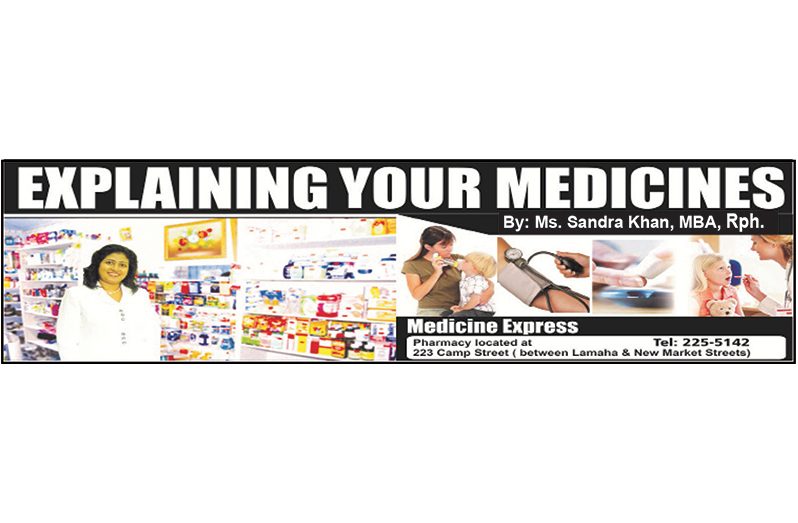SO, after the doctors, technicians and pharmacists have done their jobs to equip you with your treatment, the ball is now in your court to adhere to the instructions issued to the best of your ability so as to get the most favourable outcome. The question is, are you taking your medications correctly?
In order to enhance the functions of some organs, assistance from drugs may be required. The pharmacokinetics of medications is how a drug is absorbed, metabolized, distributed and excreted, which then induce biochemical and physiological effects on the body from the cellular level, known as the pharmacodynamic effects.
At specific dosing intervals and dosages, a steady state equilibrium may be achieved in the body, taking into consideration the individual capacity to break down and excrete the drug, which is indicated from the liver and kidney function test results. This is a necessary checkpoint, especially for the elderly, since maintaining a stable environment is vital for optimal health.
Hence, the frequency of dosing is very important for maintaining the therapeutic level of the chemically active drug in the body in order to provide a desirable action. Some medications have a narrow therapeutic index such as phenytoin, which is used in seizures. This means that for the drug to function effectively, an optimum level in the blood must be achieved; therefore, the dosing regimens must be adhered to.
Likewise, frequently missed doses prescribed or quitting treatment all together have varying degrees of consequences, ranging from activating withdrawal symptoms in the case of anti-depressants, to suffering a stroke, heart attack or kidney failure in the cases of antihypertensive and antidiabetic pills, over a prolonged period of time.
In the case of blood thinners, which wear off in 24 hours, you are cautioned not to double up if you missed a dose, but to take the next dose as soon as you can.
Additionally, you are recommended to only cut uncoated or scored pills if you are prescribed half or quarter of the available strength. Generally, most solid oral formulations of medications are film-coated for various reasons, ranging from masking its taste to giving an aesthetic appeal. However, many generics remain scored like paracetamol, which are visually distinguished by the line on the tablet.
The value-added feature of novel technology of delayed released pills allows the incremental release of drug from the small intestines into the blood at timed intervals, in addition to offering protection of the gastric mucosa, whilst simultaneously not exposing the medication to gastric contents. Hence, some manufacturers have rebranded and upgraded their product portfolio to the MR (modified release) or the SR (slow release) versions.
Therefore, always seek the advice of pharmacists with regard to taking medications with or without food. Medications such as some antibiotics, gas-relief pills and pain killers almost always should be taken after a meal, since the food coats the stomach lining and prevents irritation and stomach bleeding over long-term use.
But the opposite is best for thyroid medication, levothyroxine, since its absorption is inhibited by food.
Also, anti-diabetic medications should be taken just before meals, since it takes about half of an hour before absorption takes place, giving you adequate time before sugar levels start to rise from food consumption. Note that diabetics are advised to eat once you take your diabetic medication since failure to do so may cause a drastic drop in your blood sugar levels.
Concomitant use with other medications such as herbal supplements, vitamins, antacids and certain fruits should be clarified with the pharmacist. For example, statins, a group of cholesterol-lowering drugs, should not be used concomitantly with grapefruit or grapefruit juice, since it potentiates side effects such as muscle and joint pains and in worse-case scenarios, liver damage.
Likewise, alcohol with certain medications such as antifungals such as ketoconazole may cause liver-function impairment. Additionally, antibiotics such as metronidazole used with alcohol may cause flushing of the face, rapid heartbeats, nausea and vomitting.
The recreational use of alcohol with sedatives is highly restricted and in extreme cases, could lead to coma or death.
Other prescription ‘meds’ such as oral antifungals and fat-soluble vitamins are best absorbed into the blood stream when taken with a fatty meal.
If you take antacids for a burn stomach it is not advisable to take it the same time with vitamins, since you would not get the benefits of the vitamins; it impairs the absorption.
Furthermore, some medications are used by courses. That is, only for the prescribed period of time and may not be required for an extension period unless directed by the doctor. Some of those medications are antibiotics, cold medications, proton pump inhibitors for stomach conditions and non-steroidal anti-inflammatory medications.
Specific mention must be made with regard to steroidal eyedrops, which should not be refilled without a prescription since in long-term use the risks outweigh the benefits.
When administering liquid formulations, standardized measuring devices in millilitres (ml) for liquids reduces the chances of inaccurate dosages. Various interpretations of a spoonful leads to over-dosing or under-dosing. As a strategy employed by manufacturers to fix this problem, the cap of the bottles is used as a measuring tool instead of inappropriately using kitchen utensils.
Apart from the benefits of taking the medications correctly to achieve the desired benefits, proper storage of medications is advised since conditions such as heat, light and humidity can affect the potency of medications.
For further discussion, contact the pharmacist of Medicine Express PHARMACY located at 223 Camp Street, between Lamaha and New Market Streets. If you have any queries, comments or further information on the above topic kindly forward them to medicine.express@gmail.com or send them to 223 Camp Street, N/burg. Tel #225-5142.


.jpg)











